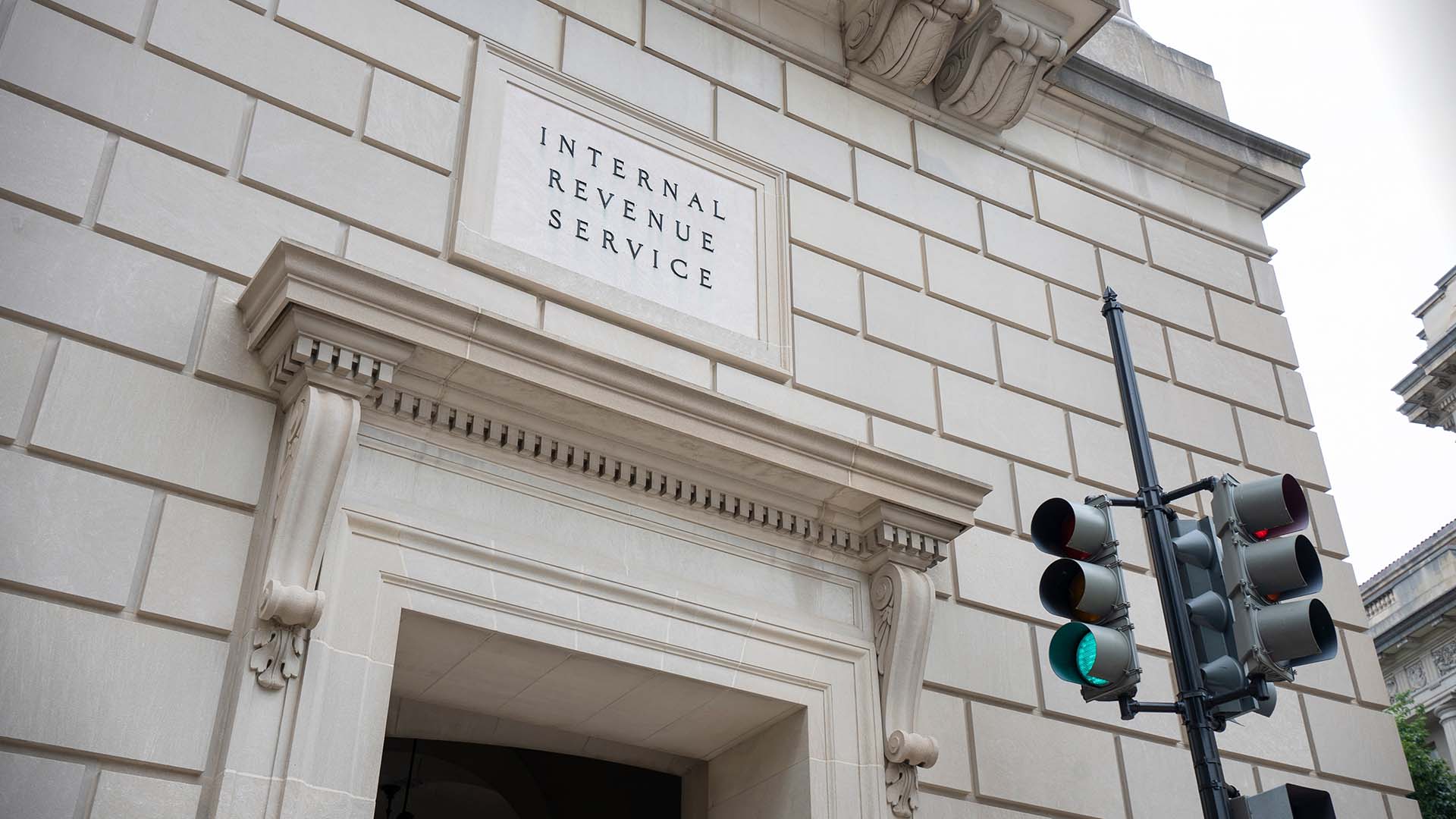The U.S. Internal Revenue Service sent fewer criminal cases to federal prosecutors in the 2024 fiscal year than at any point in more than 40 years, according to a review of federal data by the International Consortium of Investigative Journalists.
In turn, prosecutors took up fewer cases that the IRS had worked on last fiscal year than in decades, except in 2020, when much of the federal government had ground to a halt.
The declining case numbers add to a list of recent woes for the tax agency and experts attribute them to years of deep budget cuts, Covid-era interruptions, and U.S. attorneys offices around the country that are hesitant or ill-trained to take on the complex tax cases that the IRS brings them.
The falling numbers may also reflect a weakening appetite in the IRS’s sprawling civil divisions for referring egregious tax cases for criminal prosecution, a trend that has caused current and former agents to worry the IRS is taking an overly soft stance toward the wealthiest taxpayers. This year, the share of IRS criminal investigations that originated from its civil audit divisions fell to 4% — nearly half of what it was just four years ago, according to the Criminal Investigation division’s annual report, released this month.
“These are extraordinarily low numbers,” Rod Rosenstein, who served as the U.S. Deputy Attorney General under President Trump after overseeing the Department of Justice’s Tax Division, told ICIJ of the IRS’s criminal case numbers. “For the tax system to work, there needs to be an effective deterrent.”
The new numbers come at a pivotal moment for the IRS. In 2022, Congress gave the agency an infusion of $80 billion to reverse years of budget cuts that hollowed out the agency’s ranks. Now the IRS is trying to rapidly overhaul its systems as it defends its funding on Capitol Hill. So far Congressional Republicans have stripped away more than a quarter of the IRS’s newly allocated money, and the agency may be on the verge of losing yet another $20 billion as a result of what some lawmakers call a legislative anomaly in the federal government’s current funding bill.
In response to questions about its falling case numbers, the IRS emphasized that its staffing recently dipped to historic lows and that the financial crimes its agents pursue have grown more complex. It said its Criminal Investigation division has scored big wins over the past year, including its assistance with the Justice Department’s historic $4.3 billion settlement with the cryptocurrency exchange Binance and its work on the first criminal conviction of a person for using cryptocurrency to evade taxes.
John Koskinen, who served as the IRS’s commissioner until 2017, said the numbers reflect a lag from prior budget and staffing shortages, despite hiring new agents since 2022. “It can take anywhere between 18 and 24 months to train a revenue agent,” Koskenin told ICIJ. “And then it takes more time for them to develop cases.”
‘Egregious’ schemes go unpunished
Amid the recurrent funding fights around the agency, IRS agents have expressed concerns that it will take more than cash alone to get the agency on the right course. Throughout 2024, ICIJ has reported on frustrations within the IRS that the agency’s office tasked with enforcing tax laws on the highest earners takes a light touch toward the powerful individuals and corporations it oversees — often settling egregious cases civilly rather than notifying criminal investigators. Some current and former agents have suggested that this establishes a precedent that allows the wealthiest people and corporations to understand they will not be meaningfully punished for breaking tax laws.
The IRS’s civil divisions, which make up the vast majority of the agency’s workforce, are supposed to flag egregious tax cheating cases for potential prosecution from the volumes of returns they process and audit. But, as ICIJ previously reported, the IRS’s division tasked with auditing wealthy people flagged tiny numbers of cases each year.
Over the past five years, the IRS’s division tasked with auditing wealthy people flagged no more than 22 instances of possible tax crimes for the agency’s criminal investigators to review further — out of trillions of dollars in annual income from large corporations and ultrawealthy people that the office oversees, according to IRS data ICIJ obtained earlier this year. During the same five years, the IRS office that covers small businesses and self-employed people flagged roughly 40 times more possible crimes, sending criminal investigators 848 referrals.
“I was putting butchers, bakers and candlestick makers in jail, but the big stuff we really wanted to go after was being ignored,” Michael Welu, a former IRS agent, previously told ICIJ. “It could be the most egregious, ridiculous scheme and they were just not interested.”
An ‘unacceptable’ trend
In 2021, the Criminal Investigation division received 7% of its cases from the IRS’s civil offices. Since then, this number has nearly dropped to 4%, according to the new data.
Charles Rettig, a former IRS commissioner appointed by President Donald Trump, called 4% “unacceptable” and told ICIJ that “every civil examiner within the IRS should be trained and aware of the potential for fraud.”
These referrals are often associated with large dollar figures and wealthier taxpayers, who in recent years have seen weak enforcement from the depleted tax agency.
“This trend is disappointing, especially after the increased hiring by IRS into civil enforcement roles,” Kathy Enstrom, a former special agent and executive manager within the IRS’s Criminal Investigation Division, said of the falling portion of referrals. “I wonder if the civil employees are encouraged to look for indicators of fraud in their training and take the steps to develop it into a fraud referral” — the agency’s term for its internal criminal referrals.
In a statement, the IRS said that on average its civil agents send nearly 200 referrals to criminal investigators per year and that “a handful of referrals could increase or decrease the percentage” of cases criminal investigators receive from officers on the agency’s civil side. This “fiscal year remained in line with previous years’ referrals,” the agency said.
The 1,794 cases that IRS criminal investigators ultimately sent to the Justice Department in the 2024 fiscal year falls short of the Criminal Investigation division’s total in 1978, its first year operating under that name. The 2024 number is all the more striking because, unlike in 1978, it encompasses tax fraud cases as well as other criminal offenses — not primarily related to tax — that the IRS criminal investigators have taken on. For instance, prosecutors last fiscal year took 693 money laundering cases and 514 narcotics cases from IRS agents, while only taking 37 cases involving “abusive tax schemes” and 83 cases involving tax return preparers.
The 1,669 cases that prosecutors took from the IRS over the same period is less than half the number taken up a decade ago. This includes cases that IRS criminal investigators led and cases that IRS investigators assisted other agencies with.
Rosenstein, the former Tax Division head, described a situation in which a lack of tax cases can perpetuate itself. Because the Justice Department receives so few tax cases, its prosecutors have little opportunity to gain experience with these notoriously difficult cases, which in turn leads to fewer prosecutors who feel equipped to take the tax cases that the IRS sends. The Justice Department’s reluctance to take on the cases can then lead to a disincentive for IRS agents to craft such cases in the first place.
“There are few prosecutors left who have significant experience trying criminal tax cases,” Rosenstein said. “It’s become a lower priority.”



